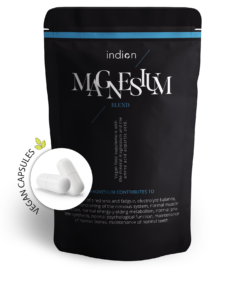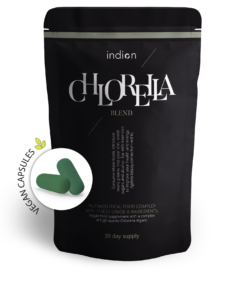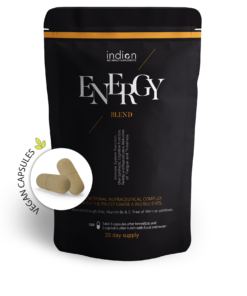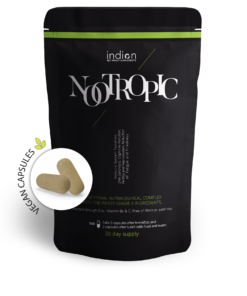What are multivitamin and mineral supplements?
A multivitamin is a dietary supplement primarily designed to help you meet the daily requirements for vitamins and minerals it offers nutritional support. A smart one will also deliver key phytonutrients from botanicals, making it more complete than just eating foods alone can provide us with!
Vitamins and minerals are essential to our health and well-being. They help to regulate our metabolism, support our immune system, and keep our cells healthy. They can help alleviate chronic disease, overall health can be reached by taking a proper supplement which can support a clean diet and active lifestyle. Also, degenerative ailments like coronary heart disease and cardiovascular events especially in older adults might be diminished.
The risk of colon cancer, lung cancer and heart and cardiovascular disease can be reduced by leading a sports and health-oriented life. A mindful diet consisting of whole foods and antioxidant vitamins is also a great tool to battle cancer risk and potential heart disease.
While we can get many of these nutrients from the food we eat, sometimes our diet doesn’t provide us with enough of them. This is where multivitamins come in. Low calorie diets paired with multivitamin supplement can help especially older adults that are of higher risk from suffering, for example of heart disease, to close potential nutrient gaps.
Multivitamins are dietary supplements that provide us with the vitamins and minerals we need to stay healthy. They often contain vitamins A, C, Vitamin D as well as minerals like calcium, magnesium, and iron. In addition to these essential nutrients, some multivitamins also contain phytonutrients from botanicals which function as adaptogens and offer tremendous nutritional support.
Phytonutrients are compounds that have been shown to promote health and well-being. They can often be found in fruits, vegetables and other food sources.
Multis come in a variety of forms, including capsules, soft gels, tablets, and even liquids, powders, and gummies. As far as choosing the right form goes, there isn’t necessarily a superior choice. Beyond personal preference, it comes down to how comprehensive is the formula, plus potency, bioavailability, and quality of ingredients not easily consumed from diet alone.
In addition to a complete B complex, a smart multi that is forward-thinking will as mentioned deliver key phytonutrients (plant-derived nutrients) from whole foods that provide us with essential vitamins and minerals not easily obtained in day-to-day life.
Top Soil depletion and why multivitamins are needed for optimal health
Foods that we eat help us stay healthy in a variety of ways. They provide us with energy in the form of carbs, proteins, and lipids, as well as vitamins and minerals to support the body’s basic functions.
These vitamins and minerals are synthesized in the plant, after being drawn from the soil. The plants that we eat or that kettle, chickens, and other livestock consume should be full of vitamins and minerals.
Unfortunately, the quality of vitamins and minerals in the soil has been gradually reduced over hundreds of years as a result of current farming practices, meaning that fewer and fewer of these critical micronutrients are making their way into the food we eat.
We’d have to consume around eight oranges now to receive the same amount of vitamin A from an orange as our ancestors did.
Topsoil quality is decreasing rapidly meaning plants could in many cases not even grow on fields without fertilizers and pesticides because the soil is so severely depleted of minerals.
Soil degradation
Plants grew wild before cultivation, and the edible sections or the entire plant were collected as needed. Any nutrients taken from the soil as the plant grew were gradually replaced through excretion or when organisms died, ensuring that the soil’s quality was maintained.
Intensive farming in the modern era is different. Soil is continually employed to grow crops to meet society’s ever-increasing food demands. Produce is transported hundreds of kilometers throughout the world with no guarantee that the minerals contained in it will return.
Unfortunately, this depletes the soil of essential nutrients, with each subsequent crop holding fewer than the previous. Modern agriculture prioritizes crops that are large, fast-growing, and pest-resistant, rather than nutritious crops. These faster-growing crops allow farmers to produce more in a year, but they don’t allow plants to generate or absorb nutrients at the same rate.
Between 1930 and 1980, a large-scale study on the nutrient value of foods published in the British Food Journal found that the average calcium content had decreased 19 percent, iron 22 percent, and potassium 14 percent in 20 vegetables. Vitamins A and C, as well as niacin, riboflavin, thiamine, magnesium, zinc, and copper, all decreased over time.
Furthermore, produce is increasingly being sent thousands of miles and languishing in storage or on shelves for weeks, resulting in nutrient profile degradation.
Current Situation
According to the Environmental Protection Agency, topsoil erosion rates in the United States have increased since farming intensified after World War II.
Today, it is estimated that as much as 3 billion tons of topsoil are lost each year due to wind and water erosion. This loss of topsoil can have a devastating effect on food production.
Topsoil is rich in nutrients and minerals that are essential for plant growth. When topsoil is eroded, these nutrients are lost, resulting in lower quality vegetables and fruits. Additionally, climate change is causing increased extreme weather events, such as floods and droughts, which can also lead to soil erosion. As a result of these factors, many experts believe that the quality of our food will continue to decline in the coming years.
To offset this decline, some experts suggest taking dietary supplements, such as multivitamins, to ensure that we are getting the nutrients we need. Others advocate for eating more nutrient-dense foods, such as leafy green vegetables and fruits.
Regardless of the approach taken, soil erosion is a serious problem that must be addressed if we hope to maintain a high quality of food in the future.
What does a multivitamin do for your body?
A multivitamin won’t miraculously transform you into an energy superhero, and an oral vitamin for skin isn’t a fast answer for your skin troubles, despite what some advertisements may claim.
It can, however, compensate for dietary inadequacies. The more processed a food item is, the more probable it is to be vitamin and mineral deficient. A multivitamin is designed to compensate for the nutrients that have been removed from our meals as a result of processing.
When we don’t eat a diverse range of nutritious foods, multivitamins can help us make up for nutritional deficiencies. They’re almost like a safety net, ensuring that you get enough of the vitamins and minerals you need.
If you think you’d benefit from a supplement, be sure it contains adequate levels of each vitamin listed on the label.
What should I look for in a multivitamin?
The food and nutrition board recommends to choose a product that contains close to 100% of the RDA for each nutrient. Look for a brand that has “GMP,” which stands for “good manufacturing procedures” and is the primary regulatory requirement for maintaining the quality of human medications look for in a multivitamin?
The benefits of taking a multivitamin and mineral supplement
In today’s fast-moving world it is very difficult to get enough fruits and veggies, let alone all of the necessary micronutrients? With everything else on your (metaphorical) plate, reaching nutritional adequacy each day through food alone is difficult—and for some nutrients, nearly impossible! Convenient food restaurants and fast food are the predominant sources of nutrition, especially for people who follow a career and work a lot and hard.
A dietary supplement is defined as “a product intended for ingestion that contains a ‘dietary ingredient’ intended to add further nutritional value to (supplement) the diet. A dietary ingredient includes vitamins, minerals, herbs or other botanicals, amino acids, and substances such as enzymes, organ tissues, glandular, and metabolites.
The most common type of is a multivitamin and mineral supplement which can help you get the recommended intake of nutrients if you have an inadequate or poor diet. It is also good for people who are unable to absorb nutrients from food due to certain medical conditions such as Crohn’s disease, celiac disease, and cystic fibrosis. Supplemental vitamin consumption can help with disease control but these anecdotal findings need to be reproduced by a preventive services task force that uses randomized controlled trials.
The importance of getting the right nutrients for optimal health
If you live in the United States, there’s a good chance you’re not getting enough of all the micronutrients you need regularly. 40 percent or more of the American population is deficient in eight out of 14 nutrients, including vitamins A, C, D, E, folate, and thiamin when considering naturally occurring sources (i.e., food that isn’t fortified).
The best way to ensure you’re getting all the nutrients you need is to eat a varied diet that includes plenty of fresh fruits and vegetables. However, dietary supplements can also be beneficial, particularly if you have trouble meeting your nutrient needs through diet alone.
A supplemental vitamin is a good place to start, but many targeted supplements can help improve your health and wellness. If you’re looking to boost your intake of specific nutrients, talk to your doctor or a registered dietitian about the best supplementation strategy for you.
Considering everything else you have on your (metaphorical) plate, achieving nutritional sufficiency each day from food alone is tough—and for certain nutrients, virtually impossible! This is where dietary supplements come in. A daily multivitamin is a great way to help fill in the nutrient gaps in your diet and ensure that you’re getting all the essential micronutrients your body needs. However, dietary supplements should not be used as a substitute for healthy foods.
Multivitamins are meant to supplement, not replace, a well adjusted diet. That being said, even with dietary supplements, it can be difficult to get all the nutrients you need on a vegetarian or vegan diet. This is why it’s important to eat a variety of nutrient-rich foods and focus on getting enough of the key nutrients that are typically lacking in vegetarian and vegan diets, such as iron, vitamin B12, and omega-3 fatty acids.
List of key ingredients that should be included in multivitamin supplements to support a balanced diet
- Folic Acid
- Vitamin B12
- Vitamin C
- Vitamin D
- Beta carotene (for eye health)
- Vitamin B6
- Inositol (formerly Vit B8)
- Zinc
- Phytonutrients (Pine bark extract)
- Functional Mushrooms
- Adaptogens
- Magnesium
- Calcium
How a multivitamin and mineral supplement can help you meet your daily needs
For those of us who are frequently preoccupied but still care about our nutrition, a 2017 study found that taking a multivitamin regularly successfully enhances micronutrient consumption and lowers the prevalence of most nutritional deficiencies in U.S. adults. That’s right, you read it correctly: A daily supplement like a Multivitamin is a nutritional multitasker, and taking one daily can help fill in the gaps caused by nutrient deficiency.
Still not convinced by nutritional sufficiency? Multivitamins should not be dismissed as ‘gap fillers.’ A new-school multivitamin that incorporates cutting-edge science is not only beneficial for filling nutrient gaps in our diet but also supports numerous elements of our health, from our bones and brain health to immune functions.
Taking vitamins can also help with energy production, and brain function and improve health in general. Potential nutrient gaps can be closed and nutritional needs are met.
Excessive intakes should be avoided, high doses of for example folic acid daily are to be discussed with a healthcare professional to ensure the body’s ability to handle the load.
Especially pregnant women should follow dietary guidelines supplied by healthcare professionals.
Recommended dosage and how to take a multivitamin and mineral supplement
When it comes to taking a multivitamin, more is not necessarily better. Taking too much of certain vitamins and minerals can be harmful. That’s why it’s important to follow the recommended dosage on the supplement label that informs about the nutrient composition and talk to your doctor before taking any type of supplement, including a multivitamin.
Most multivitamins come in tablet or capsule form and are meant to be taken orally with water. Some liquids and powders are also available. If you have trouble swallowing pills, many options come in liquid or powder form.
As for how often you should take a multivitamin, the consensus is that once a day is best. This gives your body a chance to gradually absorb all the nutrients from the supplement and helps to avoid any potential side effects.
So, if you’re looking for a tool that can help fill in the nutrient gaps in your diet, boost your intake of key nutrients, and support the immune system, healthy weight, and wellness, look no further than a multivitamin and mineral supplement. With its proven benefits and ease of use, it’s no wonder that taking a daily multivitamin is one of the simplest and most effective ways to improve your health and wellness.
The best time of day to take dietary supplements
There is no definitive answer to this question as everyone’s body absorbs nutrients differently. Some people may find that taking a multivitamin with breakfast helps them to better absorb the nutrients, while others may prefer taking it with dinner. Ultimately, it’s up to you to experiment and see what works best for you. Just be sure to take it at the same time each day to maintain consistent levels of nutrients in your body. We also need to consider that other nutrients have different ways of uptake a well-balanced multi will address this issue and reflect this knowledge in the formula
Vitamin and mineral supplements are an important part of many people’s diet, especially older adults can benefit. They help to ensure that the body gets the nutrients it needs to function properly. Combined with high-quality food sources and other supplements they build a powerful team.
However, there is some debate about the best time of day to take a multivitamin. Some experts recommend taking a multivitamin with breakfast, while others suggest taking it with dinner. There is no definitive answer, but there are some advantages and disadvantages to both approaches. Individual nutrients all react differently in the body and have different uptake mechanisms and functions. A one fits all solution is wrong and not possible.
Taking a multivitamin with breakfast may help to improve absorption rates. Breakfast is typically the largest meal of the day, and it can help to increase blood flow to the digestive system. This can allow the body to better absorb the nutrients from the multivitamin and creates the reduced risk of losing certain nutrients.
Additionally, dietary supplement use with breakfast may help to reduce the risk of gastrointestinal issues. When taken on an empty stomach, multivitamins can sometimes cause upset stomach or nausea. However, taking them with food can help to counteract this effect.
On the other hand, supplemental vitamins with dinner may be more effective for people who have trouble sleeping. The body’s metabolism slows down at night, which can make it difficult to absorb nutrients. Taking a multivitamin with dinner can help ensure that the body has adequate time
Is it good to take a multivitamin every day?
Typically multivitamins should be taken one to three times daily. Take care to read labels and follow the prescribed dosage directions.
Multivitamins are a form of dietary supplement that is commonly taken by people to improve overall health and well-being. The use of multivitamins has been debated for many years, with some experts arguing that they provide little benefit and may even lead to negative side effects.
However, there is also evidence suggesting that multivitamins can help prevent certain nutrient deficiencies, particularly in people with poor dietary habits or those at risk for certain chronic diseases.
Therefore, whether or not a multivitamin is right for you depends on your individual health needs and goals. If you are considering taking a multivitamin regularly, it is best to chat with your doctor first to determine the best dosage and duration for your particular situation.
Ultimately, the key is to be mindful of how multivitamins fit into your overall diet and lifestyle so that you can make the most of their benefits while avoiding any potential risks.
Is it bad if you take too much of a multivitamin?
Multivitamins appear to be relatively safe (when taken carefully), although it is possible to take too many. At high enough amounts, fat-soluble vitamins like Vitamin A, Vitamin D, Vitamin E, and Vitamin K can be stored in your body and become poisonous. (If you have too many water-soluble vitamins like folic acid, vitamin C, or B12, you normally just pee them away.) You should be alright if you forget to take your daily multivitamin and take a second one by accident; just don’t make it a habit. Also, consult your doctor before beginning to take a multivitamin: Because certain vitamins can interfere with drugs, it’s best to be cautious.
What to do if you experience any side effects from taking a multivitamin and mineral supplement
Although primary prevention through a healthy diet is the best way to obtain the vitamins and minerals needed for wellbeing, supplemental vitamins may be necessary for some people.
If you experience any side effects after taking a multivitamin and mineral supplement, stop taking the supplement immediately and contact your primary care provider or a registered dietitian. Some common side effects include nausea, vomiting, diarrhea, constipation, and headaches.
These side effects are usually caused by nutrient deficiencies or an intolerance to certain ingredients in the supplement. If you have any concerns about taking a multivitamin and mineral supplement, please speak with your primary care provider or a registered dietitian.
Is Multis worth the consumption?
There is much debate over whether or not multivitamins are worth consuming. On the one hand, there is evidence to suggest that primary prevention through vitamin supplementation is an effective way to maintain good health.
These kinds of vitamins help address nutrient deficiencies that may lead to a wide range of diseases and disorders. Plus, with so many different varieties available, it is easy to find a supplement that meets your specific needs and preferences.
On the other hand, there are some concerns regarding the quality of multivitamins. For example, low-quality supplements may not contain the appropriate amounts of nutrients, or they may contain harmful substances like preservatives or artificial additives. Additionally, some people simply cannot tolerate synthetic vitamins and need to opt for more expensive but higher-quality products.
In conclusion, it seems clear that purchasing premium products can have benefits in terms of maintaining good health through primary prevention.
However, for those who cannot tolerate synthetic supplements or who cannot afford the higher cost associated with these products, other options such as diet and lifestyle changes are also worthy considerations.
Ultimately, what matters most is finding the right balance between cost and quality that works best for you personally.
Misconceptions
To begin with, multivitamins are not a substitute for a healthy, well-balanced diet. (They were never said to be.) Multivitamins, on the other hand, are an excellent addition to a well-balanced diet. A multi is a terrific tool if you’re searching for a modest boost in your nutrition and a big win for whole-body health!
Multivitamins are a great way to get your daily dose of vitamins and minerals. People often use them as an ergogenic aid or for adding extra nutrients in place of meals, but nobody said they’re going to replace eating right! That being said, if you’re looking for that little boost with no nutrition drawbacks then consider popping on one: it’ll help maximize health while giving back what’s lacking from our diets today – strong immune systems wrapped up into pretty packages ready to make us all feel good inside
Let’s also dispel the myth that high-quality multivitamins are ineffective (since that’s just absurd). The degree of value, as with any supplement, is entirely dependent on the scientific proof, quality, potency (dosage), and bioavailability of its constituents.
So, it would make sense that a supplement with fewer fillers and better-quality ingredients would be more bioavailable and therefore, more effective.
Choosing the right product
When it comes to choosing the right nutritional supplement, there are a few things you should consider.
First, what are your specific needs? Are you looking to improve your overall health and immunity, or do you have a specific nutrient deficiency you need to address?
Second, what is your budget? There is a wide range of nutritional supplements on the market, so it’s important to find one that fits both your needs and your budget.
Third, what is your preferred delivery method? Some people prefer to take their supplements in pill form, while others prefer a liquid or powder.
Finally, consult with your healthcare provider. They can help you determine whether or not a nutritional supplement is right for you and can offer guidance on which product to choose. By considering these factors, you can be sure to find the right nutritional supplement for you.
The Bottom Line
Multivitamin and mineral supplements can help fill the gaps in your diet, ensuring you get the nutrients you need to stay healthy.
With modern farming practices robbing our soil of vital minerals and with erosion carrying them away, it’s more important than ever to supplement your diet with a quality multivitamin.
Not only will this improve your overall health, but it can also boost your energy levels and improve your mental clarity. So don’t wait – start taking a multivitamin today and enjoy all the benefits they have to offer. What are you waiting for?
By 2022, it is predicted that over 75% of the American population will be deficient in essential vitamins and minerals. This deficiency can lead to a host of health problems including autoimmune diseases, cardiovascular disease, cognitive decline, and infertility.
The good news is that you can prevent these conditions by taking a high-quality multivitamin or mineral supplement. In this blog post, we’ve outlined the benefits of nutritional supplements and why premium quality is essential for success. We hope you will consider adding a multivitamin to your daily routine to optimize your health and live a more fulfilled and powerful life.
Nutritional supplements
€39,90
Nutritional supplements
€39,90
Nutritional supplements
€39,90
Nutritional supplements
€59,90






